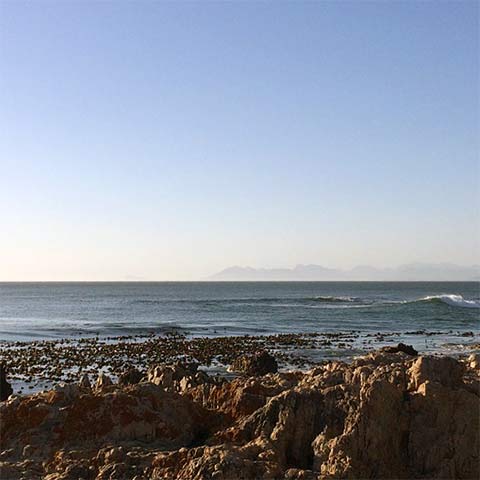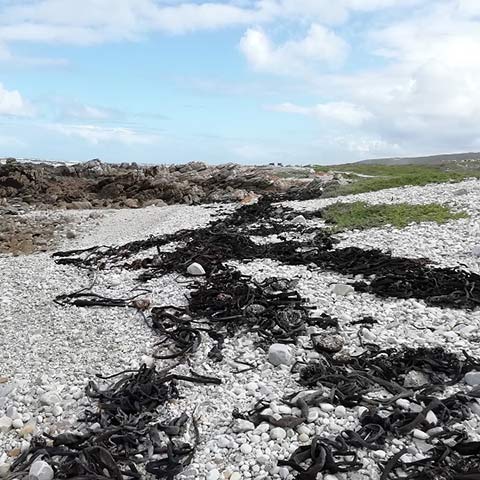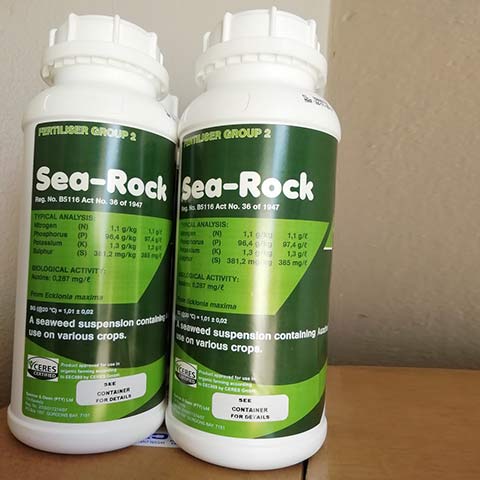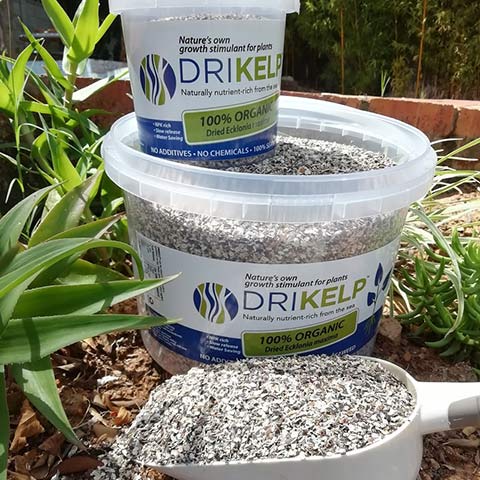spend R1000 & 2kg or less = free shipping.
Menu

spend R1000 & 2kg or less = free shipping.

Your Cart is Empty

3 min read
The following article has been written by Jackie Wiggins of Rawkelp
Kelp (Ecklonia maxima) – also known as brown seaweed.
Seaweed is an algae found in and around our South African coastline. It is the only plant that grows from the top down and as it has no root system, it is held on to a rock by a holdfast. All nutrients are drawn from the ocean through the fronds (leaves) which enables elongation of the stipe (stem) to gain access to the sun for photosynthesis. Once harvested, the fresh seaweed goes through a cold press process to extract the nutrient filled liquid and this is manufactured into growth stimulants for plants and widely used in agriculture.

Kelp beds along the South African coastline.
All land plants need macronutrients, nitrogen, phosphorus and potassium (NPK) to grow. Often overlooked by new growers is the equal importance of micronutrients which naturally become depleted in your soil even when fed well. Both macro and micro nutrients are found in abundance in kelp.

Ecklonia maxima beachcast
Kelp also contains auxins and cytokinins which are effective growth promoting hormones. The quantity present of these hormones is small but only a small amount is required to make a big difference to your plant growth. An auxin is the natural occurring Indole Acetic Acid which is in fact a weak organic acid. It has a simple chemical structure but is strong in controlling cell division to promote amongst others, root growth. Auxins are also responsible for the plant “growing towards the light”. Auxins naturally move to the side of the plant away from the light and as they cause the stem cells to elongate, they cause the plant to lean toward the light.

Harvesting fresh kelp
Cytokinins work together with auxins. They are also found in roots but travel to stem tips, leaves, new fruit and flower buds to aid with cell division and growth. They do this by increasing protein production needed for mitosis.
Dried kelp holds all the same goodness as the liquid format but dried kelp flakes and kelp meal have the added benefit of its water retention ability. Therefore, if you add kelp meal or flakes to your soil at planting stage, it retains moisture. The kelp is therefore hydrated within your soil and not only feeds the underdeveloped roots with valuable nutrients, it slowly releases the moisture too. As it breaks down, it adds humus to your soil and creates a healthier environment for your plant.

Sea-Rock and Kelpak are liquid extractions of kelp which can be used in agriculture as part of a complete fertilizing regime.

Dried kelp chips are a popular additive to growing media in container gardening.
A little goes a long way. There is no point in “overfeeding” your plant, it will just go to waste. Stick to the application instruction on the packaging and frequency suggested and your results will be very satisfying. You generally need to feed your plant kelp at planting stage and one week later and then every second or third week thereafter. If your plant is under stress, feed once a week until the plant regains strength. Feeding instructions will be found on the packaging of your kelp product.
Make sure you use organic kelp products without unnecessary additives which your plants cannot uptake. That said, kelp is not a complete fertilizer, it would be beneficial to check your soil quality to determine your full requirements. Happy growing and keep it green.
RAWKELP is based in Gordon's Bay, Western Cape and sells largely raw material to manufacturers of organic fertilizers. We have recently entered the online retail market with our liquid kelp suspension, SEA ROCK® and our dried kelp flakes DRIKELP® to bring the wonders of this natural growth enhancer to the home grower. You can contact Jackie Wiggins of Rawkelp on 082-8995130 or jackie@rawkelp.co.za. Or visit their website: www.rawkelp.co.za
Comments will be approved before showing up.

Exclusive Offer: Buy 2 Venus Fly Traps, Get the 3rd One FREE - Limited Time Only!
Add three, six, nine or any other multiple of three of our hungry fly traps to your cart and the discount is automatically applied.